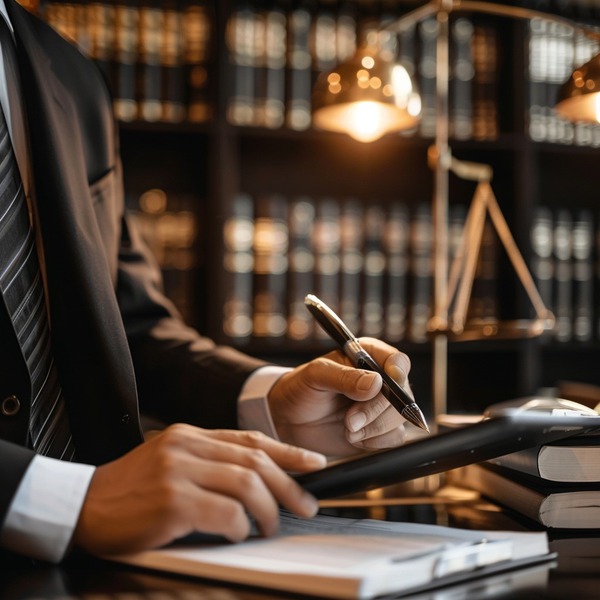When it comes to dealing with legal matters, choosing the right lawyer is a critical decision that can significantly impact the outcome of your case. Whether dealing with a personal issue, a business-related problem, or a complex legal dispute, having the proper legal counsel can make all the difference. But how do you know which lawyer is the right fit for your needs? This article provides some straightforward tips and considerations to help you make an informed choice.
What to Consider When Choosing Legal Counsel
When selecting a lawyer, evaluating several factors is essential to ensure they fit your specific legal needs. Let’s break down the most essential aspects to consider:
1. Identify Your Legal Needs
Before you search for a lawyer, it’s crucial to determine the exact legal issue you need help with. Lawyers specialize in different areas of law, such as family law, criminal defense, personal injury, or real estate. Narrowing down your needs will help you find someone with the right expertise.
For instance, if you’re dealing with water usage issues, you should seek a water rights lawyer. Specializing in this area ensures the lawyer understands the regulations and can effectively represent your interests.
2. Reputation and Reviews
Word-of-mouth recommendations and online reviews can provide valuable insights into a lawyer’s reputation. It’s always a good idea to ask friends, family, or colleagues if they can recommend a trusted lawyer, mainly if they’ve dealt with a similar legal issue.
Additionally, you can check online platforms that review lawyers, as these often provide unfiltered opinions from past clients. High ratings and positive feedback can indicate that the lawyer is reliable and competent. However, I read both positive and negative reviews to fully understand the lawyer’s strengths and weaknesses.
3. Experience and Expertise
Once you know what area of law your issue falls under, look for an attorney with substantial experience in that field. An attorney with years of relevant experience will likely have a deeper understanding of the legal processes and potential challenges you might face. To gauge their expertise, you can ask potential lawyers about their past cases, approaches, and outcomes.
An attorney with expertise in real estate disputes, for instance, would be a professional real estate litigation attorney who regularly handles cases in this area. Having the right expert on your side can significantly increase your chances of success.
4. Communication Skills
A lawyer’s ability to communicate clearly and promptly is essential for building a good attorney-client relationship. You want someone who can explain complex legal terms in a way that makes sense to you and keeps you informed about the progress of your case. During your initial consultations, observe how well the lawyer listens to your concerns and responds to your questions. Effective communication is vital to feeling confident and secure throughout the legal process.
5. Legal Fees and Billing Structure
Different lawyers have different billing structures, and it’s important to know upfront what the cost will be and how you will be billed. Some lawyers charge by the hour, while others may work on a contingency basis, meaning they only get paid if you win your case.
Be sure to ask about their rates and any potential additional costs you may incur. Understanding the fees from the start will help you avoid surprises.
6. Location and Availability
While many legal services can now be provided remotely, choosing a lawyer familiar with the local legal system is often helpful. A lawyer with experience in your area will better know the local courts, judges, and procedures.
For instance, if you’re dealing with issues related to local government law, it’s beneficial to hire an attorney who has experience in that field within your area. Their familiarity with local laws and regulations can give you an edge in your case.
7. Personal Comfort and Trust
Legal matters can often be stressful, and you want to work with a lawyer you trust and feel comfortable with. Trusting your lawyer is critical, as you will share confidential and personal information with them. During the initial consultation, trust your instincts—if you feel comfortable and confident in their abilities, it’s a good sign that you’ve found a good match.
Key Questions to Ask When Choosing a Lawyer
When meeting with potential lawyers, asking a few key questions to evaluate if they’re the right fit for your case is helpful. Consider asking:
-
What is your experience in handling cases like mine?
-
How long do you think my case will take?
-
How do you prefer to communicate with clients?
-
What are your fees, and how do you bill clients?
-
Can you provide references from past clients?
These questions will give you a better sense of the lawyer’s experience and whether their working style aligns with your needs.
Why It Matters to Choose the Right Lawyer
Selecting the right lawyer is more than finding someone with the proper credentials. It’s about finding an attorney who understands your needs and has the experience, communication skills, and dedication to represent you effectively.
Ultimately, the right lawyer will provide the guidance and expertise you need to navigate the legal system and give you peace of mind.
Wrapping Up
Choosing the proper legal counsel doesn’t have to be overwhelming. You can make an informed decision by clearly identifying your legal needs, evaluating potential lawyers’ experience, reputation, and communication skills, and understanding their fee structures. Remember, it’s not just about qualifications; finding someone you trust and feel comfortable working with is equally important. These tips will help you find the right lawyer to effectively represent your interests and help you achieve the best possible outcome.








